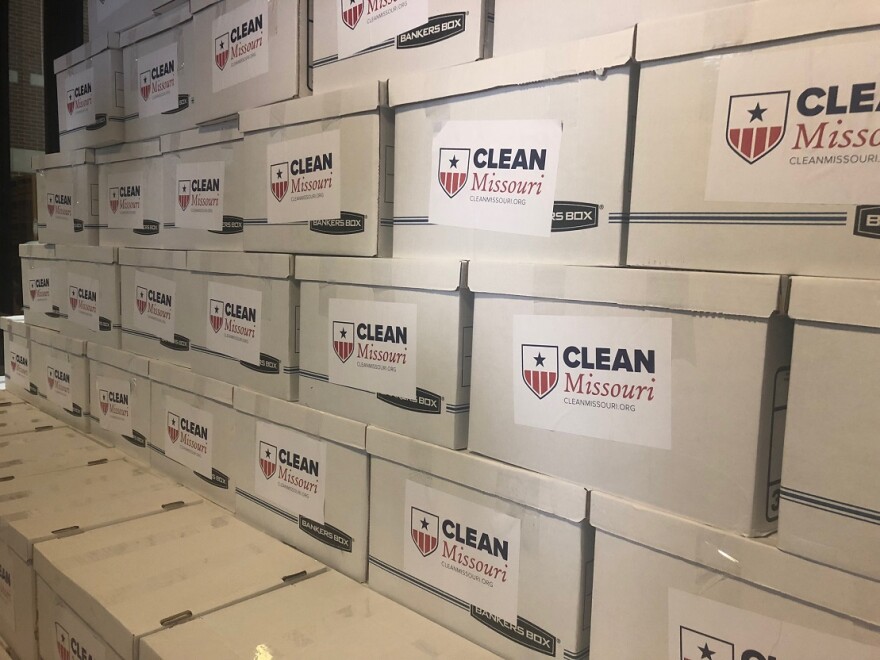Opponents of current ethics laws that allow unlimited gifts from lobbyists to lawmakers on Thursday delivered dozens of boxes of signatures to Jefferson City to change the state’s constitution.
The proposed amendment is sponsored by the group Clean Missouri. It includes limiting lobbyist gifts to $5 in value, expanding the waiting period for former elected officials to become lobbyists from six months to two years, and lowering caps on donations to state House and Senate candidates.
Currently, contributions to legislative candidates are capped at $2,600 per donation. The initiative would lower them to $2,500 for state Senate candidates and to $2,000 for those running for the state House.
“What we’ve found in the streets as we collect signatures is that there’s bipartisan disgust with what’s happening here, with what’s become normal here in Jefferson City,” said Sean Nicholson, campaign director for Clean Missouri.
Nicholson says they’ve collected more than 346,000 signatures, which have to be verified by the Secretary of State’s office.
Clean Missouri is a coalition of groups that include Jobs with Justice, the Sierra Club, Planned Parenthood, and several labor unions.
State Rep. Justin Alferman, R-Hermann, calls the ballot initiative a scam.
“This has nothing to do with ethics reform, in fact, half the things that are in here the Missouri legislature has already put into statute,” he said. “We have campaign finance [limits] in Missouri now - taking it from $2,600 down to $2,500 doesn’t do anything; it just give the appearance of doing something.”
In 2016, lawmakers passed bills creating a six-month waiting period for ex-officeholders to become lobbyists and barring current elected officials from hiring each other as paid political consultants. But bans on lobbyist gifts have failed to make it out of the legislature the past two years. Alferman sponsored both of those bills, and is sponsoring it again this year. It passed the House in January but is still awaiting debate on the Senate floor.
He said the ballot initiative’s real purpose is to radically change how state legislative districts are drawn, which is part of the proposal.
“It’s an absolute smokescreen, and this clearly, in my opinion, will be thrown out on a constitutional issue,” he said. “You can’t throw redistricting in with a lobbyist gift ban, in with a contribution limit, into a cooling-off period.”
But Clean Missouri backers argue that redistricting should be a part of ethics reform. It would take state redistricting process out of the hands of a bipartisan commission and have a “nonpartisan demographer” draw new district maps. That aforementioned commission could change the demographer's proposal, but it would require a bipartisan consensus.
Follow Marshall on Twitter:@MarshallGReport




